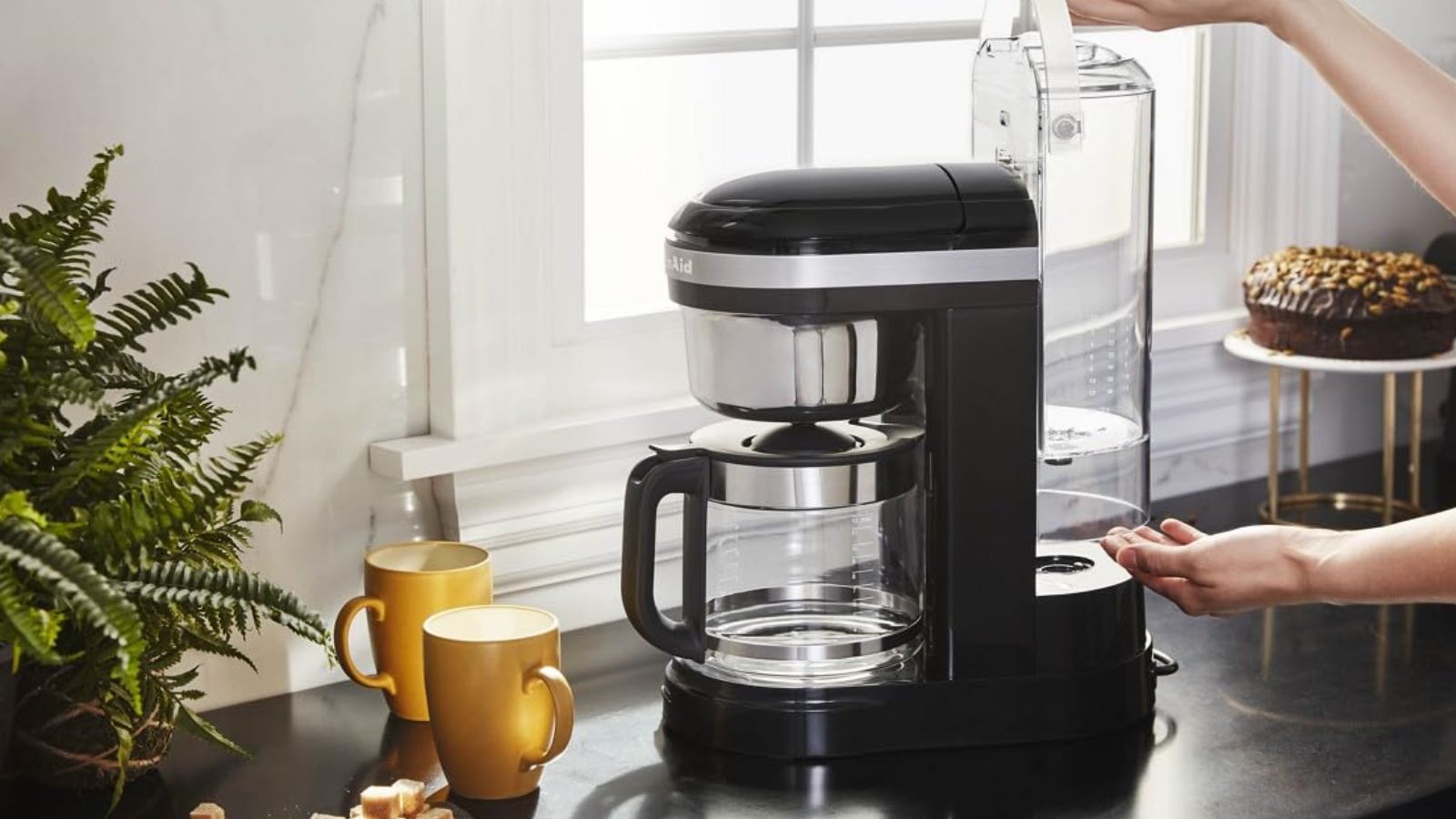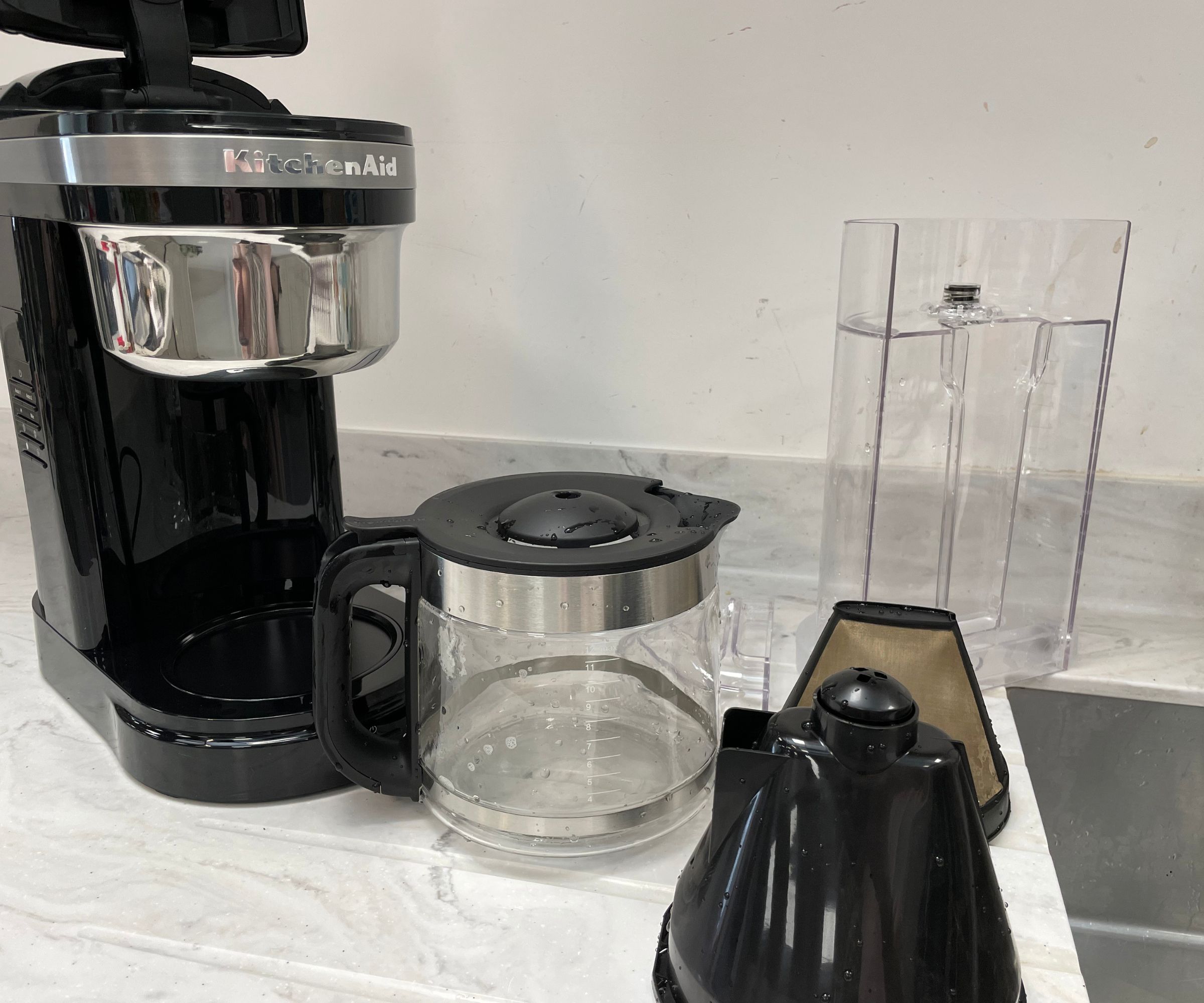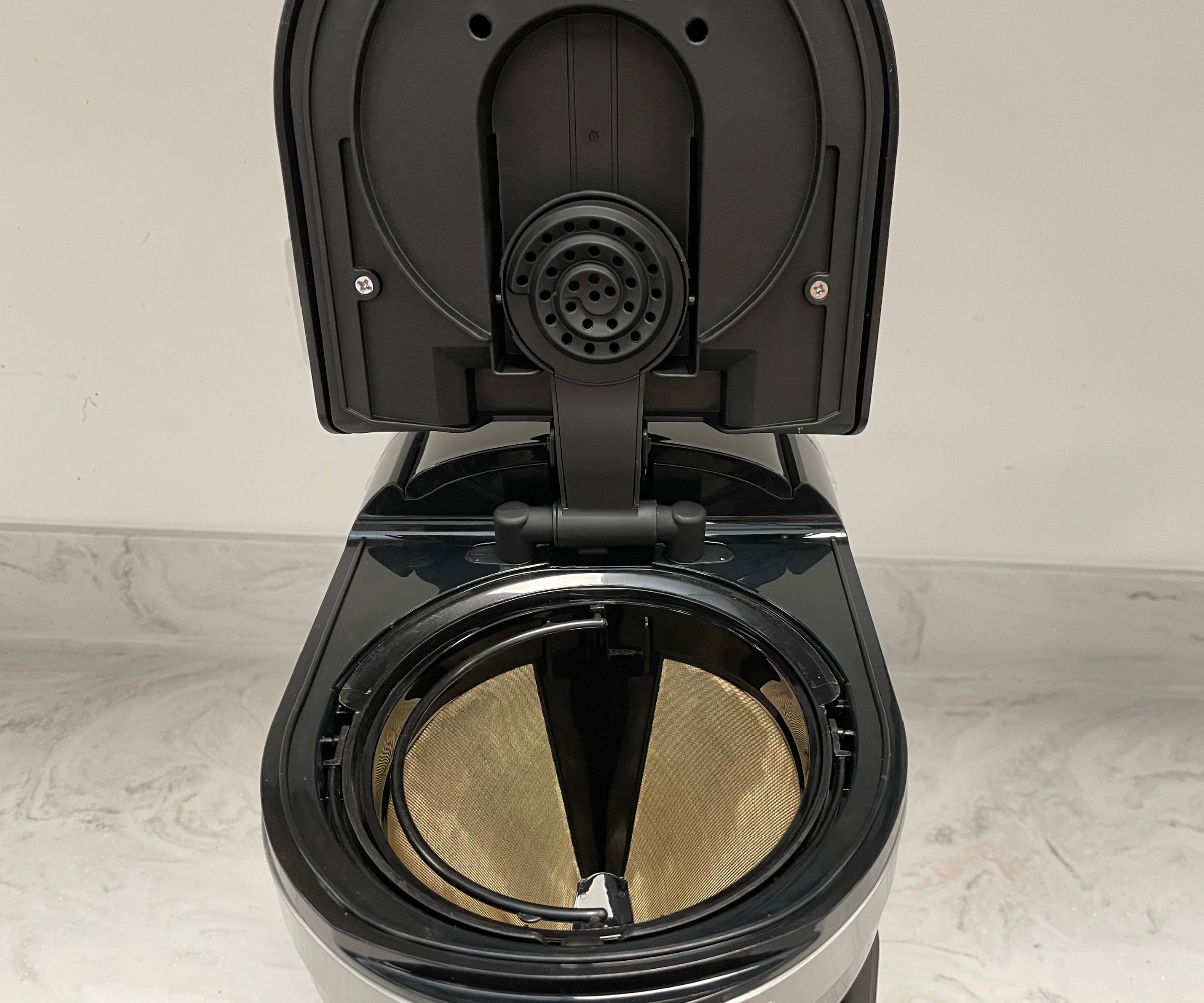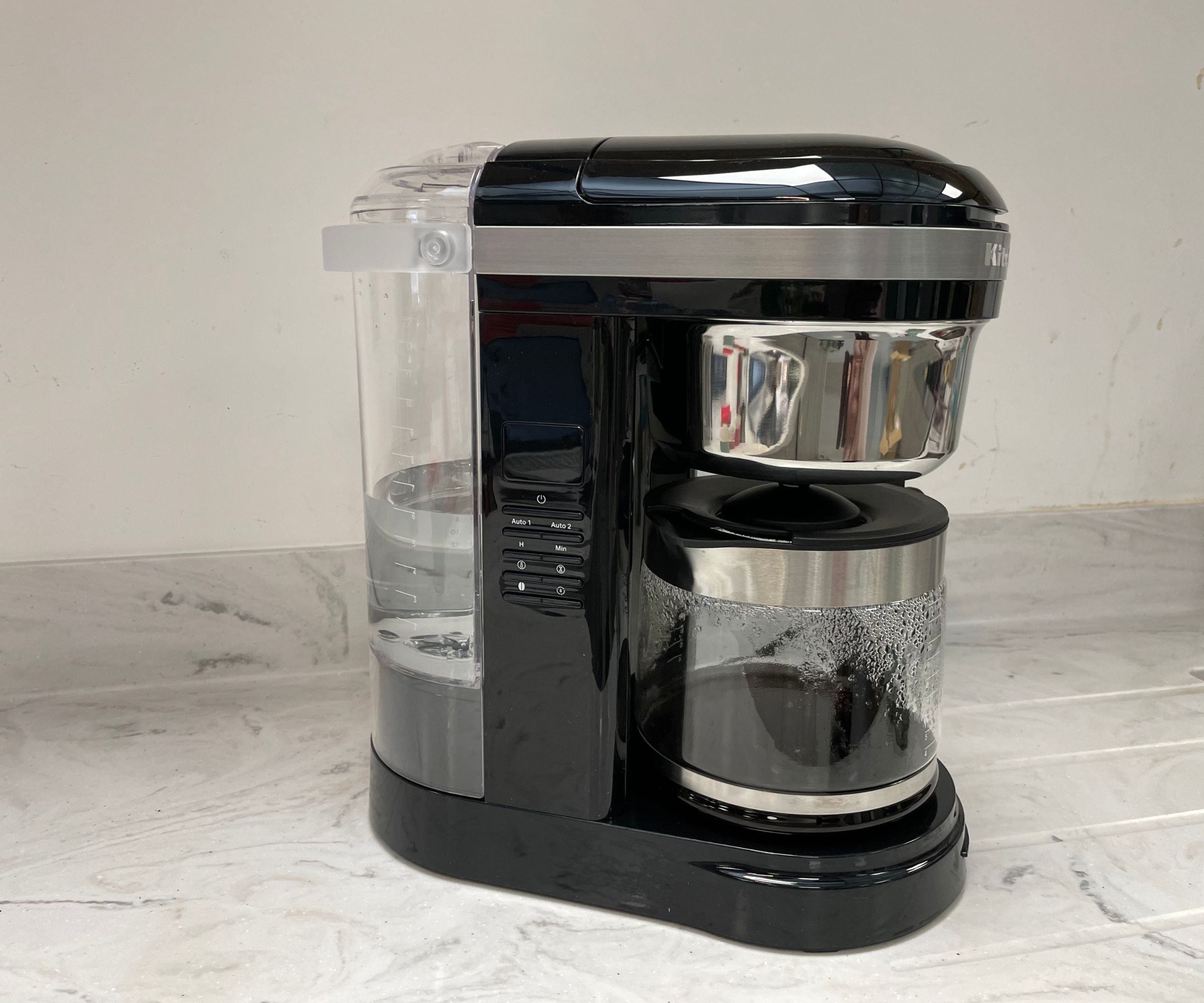
If you want yours to keep making delicious coffee, you need to know how to clean a drip coffee maker properly. It's one of the most important but often overlooked routines that you'll need to get into once you've invested in one.
Unlike cleaning a coffee maker, or cleaning a Keurig, drip coffee makers have most of their components on show, making it a little easier to clean up after a fresh cup of coffee. The downside to this openness, however, is that coffee and water spit around the inside of the device into every nook and crevice, making frequent deep cleaning essential.
Here is how to clean a drip coffee maker to prevent mold and bacteria with the things you likely already have in your kitchen cabinets.
How to clean a drip coffee maker

The best coffee makers need the best care to keep them producing the perfect cup of coffee, and this means regularly cleaning out the machine – even when it is a faff to do so. ‘On coffee and espresso machines, limescale can build up on the pumps and heating element. This can affect the heat of the coffee, as well as the taste. And if the buildup is not removed, the machine may stop working altogether,’ explains Tonya Harris, founder of Slightly Greener and author of The Slightly Greener Method, on Amazon.
‘Descaling is removing scale (or limescale) from parts of equipment where it can build up. Water contains minerals and calcium that can form limescale, which can build up over time, and can hinder the flow of water when it comes to water faucets. It can also affect items like coffee machines.’
For the best results, you should clean your coffee maker every use, and descale and deep clean at least once a month. Here is how to do both.
You will need:
- Fresh water
- Vinegar – such as Aunt Fannies 6% cleaning vinegar on Amazon
- Bottle sterilizing tablets – like these steramine tablets from Walmart
- A soft bottle brush – like these foam brushes from Amazon
- Dish soap – like Dawn from Walmart
How to clean a drip coffee maker daily

1. Dump out used coffee grounds and filters
‘If brewing grounds allow the brewer to cool, then remove the brew basket by pinching the basket and lifting it out,’ says the experts at Ninja. ‘If you use a paper filter, discard the filter and the used grounds into your waste bin.’
You may also want to consider using coffee grounds for plants as fertilizer too if you are looking to be more sustainable at home.
2. Wash the filter basket and carafe in warm, soapy water
To clean the filter basket and water reservoir, check if your model can be placed in the dishwasher. If so, ‘place it in the bottom rack of your dishwasher with the open end facing downwards, recommend Ninja experts. Otherwise, wash the removable parts by hand with warm soapy water in your kitchen sink.
‘We recommend cleaning your carafe after each use with warm, soapy water,’ they advise. ‘To clean the carafe more thoroughly, we recommend using a soft foam brush,’ they add, ‘do not use a wire brush as this will damage the glass.’
3. Dry thoroughly before reassembling
Drying the drip coffee maker components thoroughly is essential to ensuring any soap suds have been wiped away and you are not leaving water marks behind on your freshly cleaned machine. Use a clean, dry dish towel, like these whimsical cotton dish towels at Anthropologie, to help buff and dry any clean parts.
4. Soak a reusable coffee filter in vinegar and water
A coffee filter, like a coffee maker, is one of the many things you can clean with vinegar. If you use a reusable coffee filter like this from Amazon, then cleaning this after every use is important for preventing contamination and mold growth.
After you have scooped out any used coffee grounds, wipe any excess out of the filter before soaking it in a pot of equal parts white vinegar and water. Distilled water or water that has been boiled and cooled down is best for this.
After leaving it to soak for 15 minutes or so, remove it from the solution and clean it with warm soapy water before rinsing and leaving it to dry completely.
How to deep clean a drip coffee maker monthly

On top of regular washing, deep cleaning a drip coffee maker at least once per month can help to prevent blockages in the pipes and sanitize your drip coffee maker to prevent mold and bacteria growth and poor-tasting coffee.
‘Descale coffee and espresso machines every one to three months, depending on how heavily they are used,’ recommends Tonya Harris of Slightly Greener.
1. Run vinegar through the reservoir
While some companies make descaling liquids (especially for coffee and espresso machines), I recommend using vinegar. It’s cheaper and most likely already in your pantry, and because of its acidic nature, it’s great at removing limescale buildup. It's also a non-toxic way to descale.
‘To descale a coffee maker, fill the machine with approximately a half-pot of vinegar and let it run without coffee in it. Do this a couple of times, and then fill the pot with just water and run until you can no longer smell the vinegar – it may take a couple of times.
‘While I always use vinegar because it’s non-toxic, some experts say vinegar may be too harsh,’ Tonya adds. ‘I recommend reading your coffee or espresso machine’s care instructions, but personally, I’ve never had a problem with vinegar.’
2. Use a bottle sterilizing tablet in the carafe
Although soap and water do a great job of refreshing a carafe after each use, a baby bottle sterilizing tablet and warm water can be perfect for deodorizing, removing stains, and killing any lingering bacteria in drip coffee pot carafes. It can also help to get rid of any stubborn coffee oils that can make even freshly brewed coffee taste bitter. Simply drop a tablet into the carafe of water and allow it to sit for half an hour or so before rinsing and drying.
FAQs
Can you run soapy water through a coffee maker?
Although it may seem logical to run soap through the internal components of a coffee maker, an abundance of soap bubbles are hard to flush out of the internal pipes making coffee taste bad. Instead, use soapy water to clean the removable parts only and use a descaling solution of vinegar to clean the internal parts instead.
Is vinegar or baking soda better for cleaning a coffee maker?
Vinegar is best for cleaning the internal mechanisms of coffee makers, however adding baking soda to the carafe can help to break down, and greasy coffee residue and modernize the pot for better-tasting coffee.







